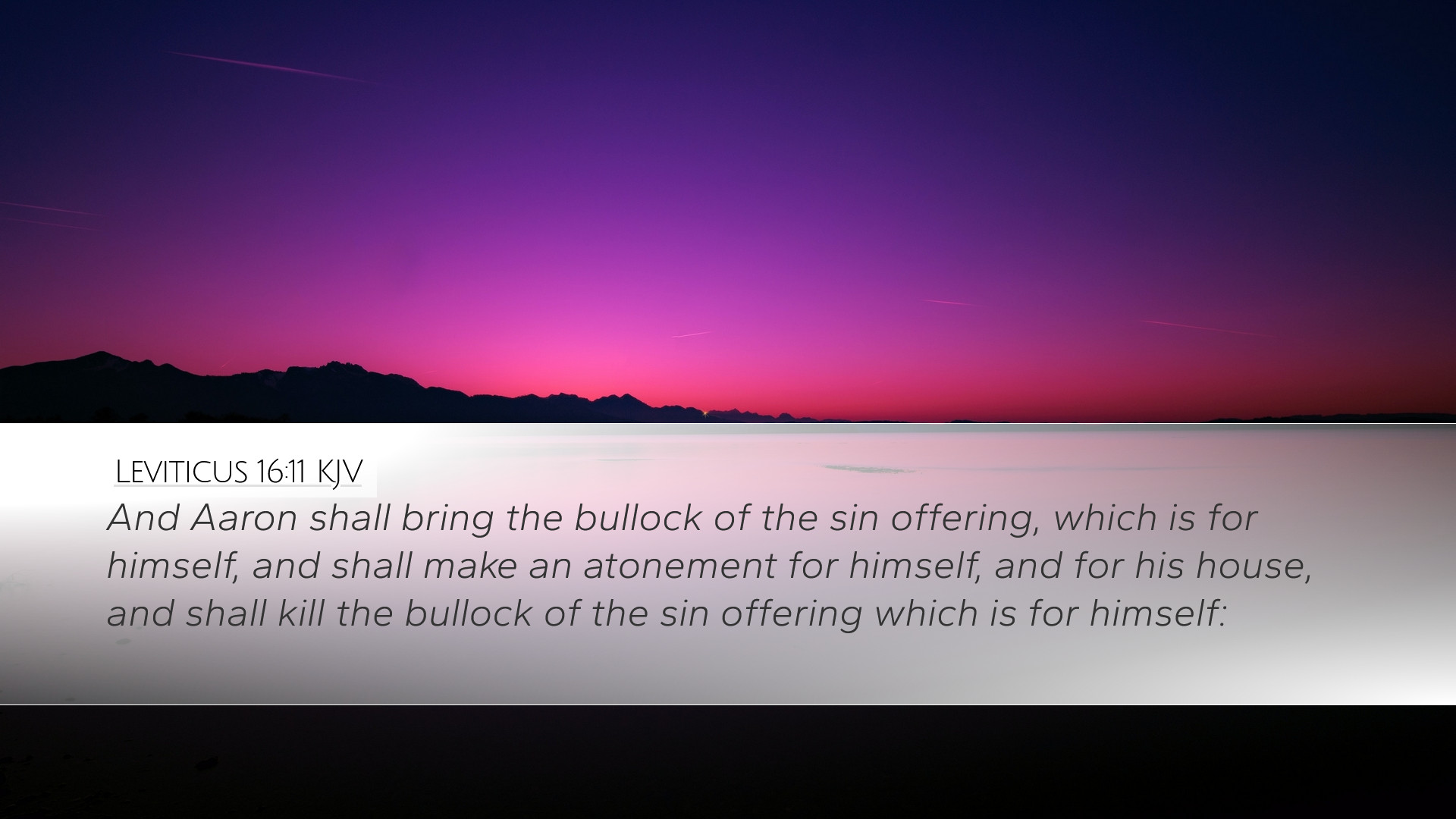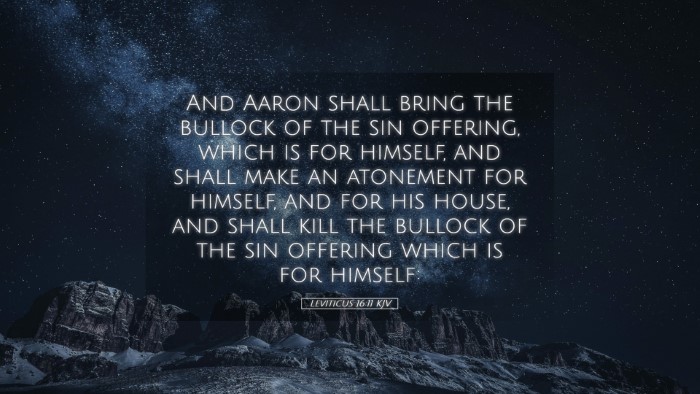Commentary on Leviticus 16:11
Contextual Background: Leviticus 16 discusses the Day of Atonement (Yom Kippur), a significant ritual in the Israelite religious calendar aimed at atoning for the sins of the people. Verse 11 specifically highlights the role of the high priest in this sacred ceremony.
Verse Analysis
Leviticus 16:11 (ESV): "Aaron shall present the bull as a sin offering for himself and shall make atonement for himself and for his house." This verse underscores the need for the high priest to first deal with his own sins before interceding for the people.
The Role of the High Priest
Matthew Henry's Commentary: Henry emphasizes that the high priest, representing the people, must ensure personal purity. He argues that no one can minister to others effectively until they have addressed their own sinful state. This sets a precedent for spiritual leadership that prioritizes personal holiness.
Albert Barnes' Notes: Barnes notes that the bull represents a complete offering, highlighting the significance of the offering's blood. The blood of the bull symbolizes life, and its shedding signifies the seriousness of the sins that need to be atoned for. The act of sacrifice illustrates the concept of substitutionary atonement—an essential theme throughout scripture.
The Sin Offering
Adam Clarke's Commentary: Clarke provides insight into the nature of the sin offering. He explains that Aaron’s offering was critical not only for himself but also for his household. This emphasizes the principle of accountability that leaders bear for those they lead. The high priest must first seek forgiveness, representing a call to genuine repentance.
Theological Implications
Sin and Atonement: The concept of sin necessitating atonement is paramount in biblical theology. The sacrifice of the bull points to the ultimate sacrifice of Christ, rendering eternal atonement. This foreshadows the New Testament narrative where Jesus fulfills the role of high priest and sacrificial lamb.
- Personal Holiness: Pastors and leaders are reminded of the essential nature of personal holiness in ministry. Effective leadership necessitates an ongoing process of repentance and reconciliation with God.
- Substitutionary Atonement: The shedding of blood links directly to the broader biblical theme of atonement, emphasizing that sin incurs a debt that must be reconciled either through sacrificial offerings or the sacrifice of Christ.
Implications for Believers
For contemporary believers, Leviticus 16:11 serves as a potent reminder of the need for personal confession and atonement before seeking to guide others in faith. It challenges the faithful to reflect upon their spiritual condition and seek God's cleansing through the atoning work of Christ.
Conclusion
Leviticus 16:11 highlights crucial elements of the Old Testament sacrificial system that resonate throughout Scripture. The necessity for the high priest to first make atonement for himself is a powerful reminder of human fallibility and God's demand for holiness. Understanding this verse enriches theological comprehension and fosters a deeper appreciation for the sacrificial work of Christ, providing a foundation for preaching, teaching, and personal spiritual growth.
Key Takeaway: Acknowledge the seriousness of sin and the profound grace found in atonement through Christ. Leaders must cultivate personal holiness to effectively lead others toward spiritual maturity.


